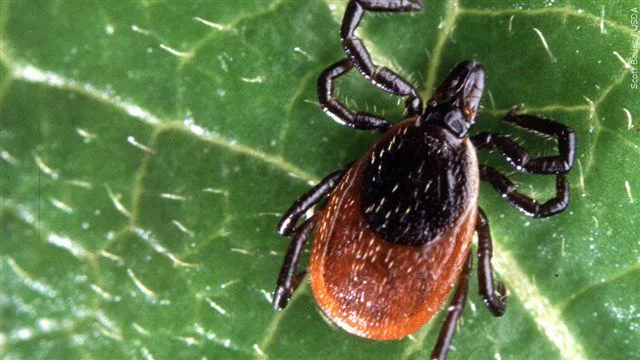BURLINGTON, Vt. (WCAX) – Tuesday is the first day of spring which means tick season is right around the corner.
Channel 3 spoke with a veterinarian and a biology professor, both of whom say the prevalence of ticks is somewhat of a recent phenomenon in Vermont.
Horses, deer, pets, and people are just some of the hosts ticks love to latch onto when the weather gets warm.
“We’ve seen a huge increase in the number of sickness and illness related to horses coming from ticks.” Equine veterinarian Dr. Molly Witters says that 15 years ago if a horse had an unexplained fever, vets weren’t using antibiotics that treated tick-borne diseases. But now she says it’s the first thing they reach for.
Nowadays, Witters says she and her practice treat hundreds of horses with tick-borne diseases, which fluctuate by peak. She says the spring peak is likely near. “We’ll see a peak of Anaplasma cases in the next two months. And then it does sort of dip through the summer and then we see a much higher peak in the fall,” said Witters,
And helping to track those peaks is Middlebury College biology professor David Allen. “Just a couple weeks ago when there was no snow on the ground people were finding tips in February… That’s one of the big ways that the weather plays a factor. And then just however long that warm season we have allows ticks more time to develop to find hosts and complete their lifecycle,” said Allen.
Allen researches tick populations year to year which he says fluctuates.
One way he keeps track is by taking the average number of nymphs per sample at his sites from May to June. In the last 4 years, there have been major swings in population.
“My research has shown in the Champlain Valley that it seems like this is our like stable equilibrium and it fluctuates around that equilibrium, but at the very least, hopefully, the tech populations aren’t increasing,” said Allen
Allen says they also sample up the green mountains but find fewer ticks as they increase elevation, which could be due to fewer hosts and temperature changes. But back In lower elevations like Middlebury, Witter is preparing for the season ahead. “There are a lot of things we can do to prevent it. Managing our environment is one. So being cognizant with our horses, being cognizant of keeping them from really brushy border areas, that’s where a lot of ticks like to be,” said Witters.
And ticks can cause diseases too, the Department of Health says the best way people can protect themselves from them includes: Avoiding areas where ticks live, wearing protective clothing, using repellent, and checking thier pets.

